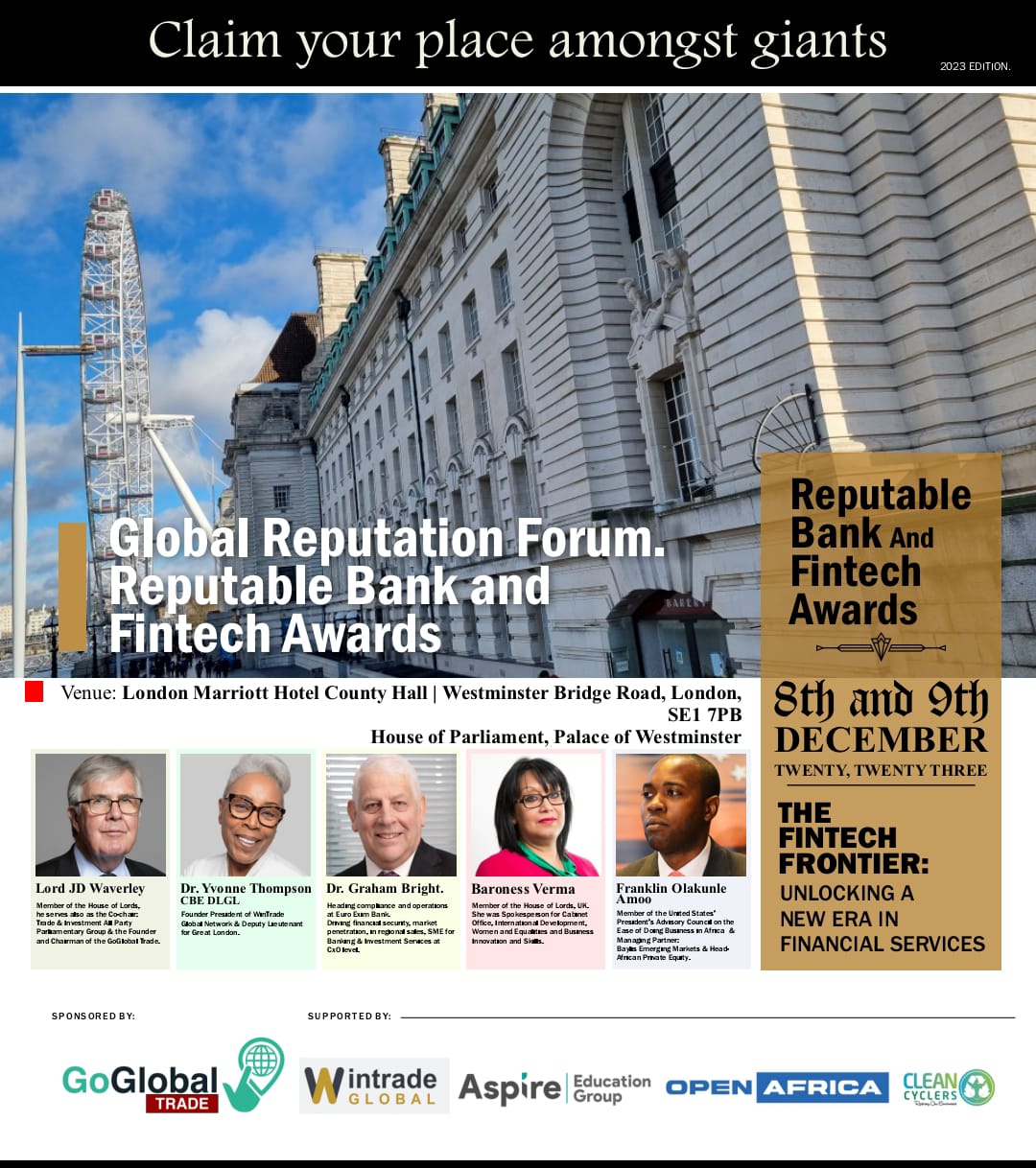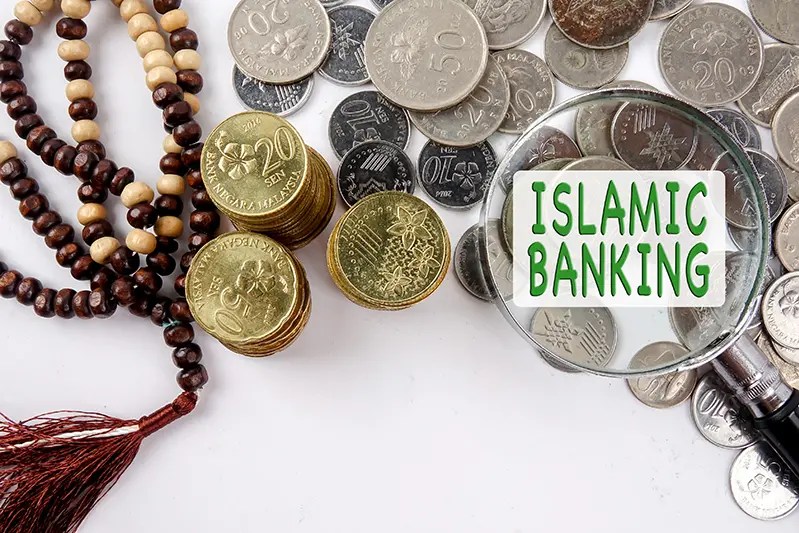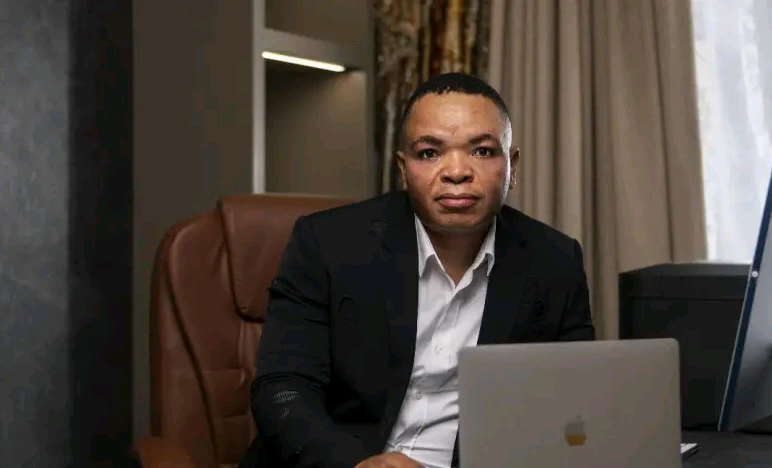World fintech and banking industry stakeholders will converge in London, United Kingdom (UK) for this year’s edition of the Global Reputation Forum (GRF)/Reputable Banks and Fintech Awards & Conferences (RBFA), bringing together experts from both the financial and technology sectors 8-9 December, 2023.
The quintessentially British London Marriott County Hall will be venue to the annual event which provides a platform for fintech startups and established banking institutions to showcase their latest innovations.
Participating institutions and personalities get to witness firsthand how technology is transforming traditional banking services, from digital payments and lending to robo-advisors and blockchain-based solutions.
Besides its objectives of showcase of innovation, regulatory insights, knowledge sharing, networking, market trends and predictions, GRF aims to foster collaborations between fintech startups and traditional banks in an increasingly developing industry trend.
The Reputable Banks and Fintech Awards/Conference is an initiative of Reputation Poll International (RPI), a leading global management firm known for listing the 100 Most Reputable People on Earth and Most Reputable Bank CEOs.
According to the organizers, RBFA will create an environment where these two worlds can meet and explore opportunities for collaboration, which can lead to mutually beneficial partnerships.
Beldina Auma, RBFA Co-Chair Screening Committee and former Chair African Society for the World Bank and IMF, said: “Attendees have the opportunity to learn from thought leaders, exchange ideas, and form valuable connections that can lead to collaborations and partnerships”.
“As fintech and banking industries are subject to ever-evolving regulations, GRF will include sessions dedicated to discussing compliance and regulatory changes. This is crucial for ensuring that innovative financial solutions remain in compliance with legal requirements”.
“GRF will offer a glimpse into current market trends and future predictions. Experts analyze market dynamics, consumer behavior, and emerging technologies, helping attendees make informed decisions and adapt their strategies accordingly”, Dr. Rex Idaminabo said.
Auma explained that Reputable Banks and Fintech Awards/Conference is designed to acknowledge rapid expansion, integration, accelerated growth and reforms of Africa’s banking and financial sector.
Some of the Speakers/Panelists for the 2023 edition include: Baroness Verma, Yvonne Thompson CBE, Lord JD Waverly and Franklin Amoo.
Baroness Verma is a Member of the House of Lords, UK. She was spokesperson for Cabinet Office International Development, Women and equalities and Business Innovation and Skills.
Lord JD Waverly is a Member of the House of Lords. He serves also as Co-chair: Trade and Investment All Party Parliament Group and the Founder and Chairman of the GoGlobal Trade.
Franklin Amoo is a member of the United States’ President’s Advisory Council on the East of Doing Business in Africa. He is also Managing Partner, Baylis Emerging Markets and Head, African Private Equity.
Yvonne Thompson CBE is the Founder/President of WinTrade Global Network and Deputy Lieutenant for Greater London.













